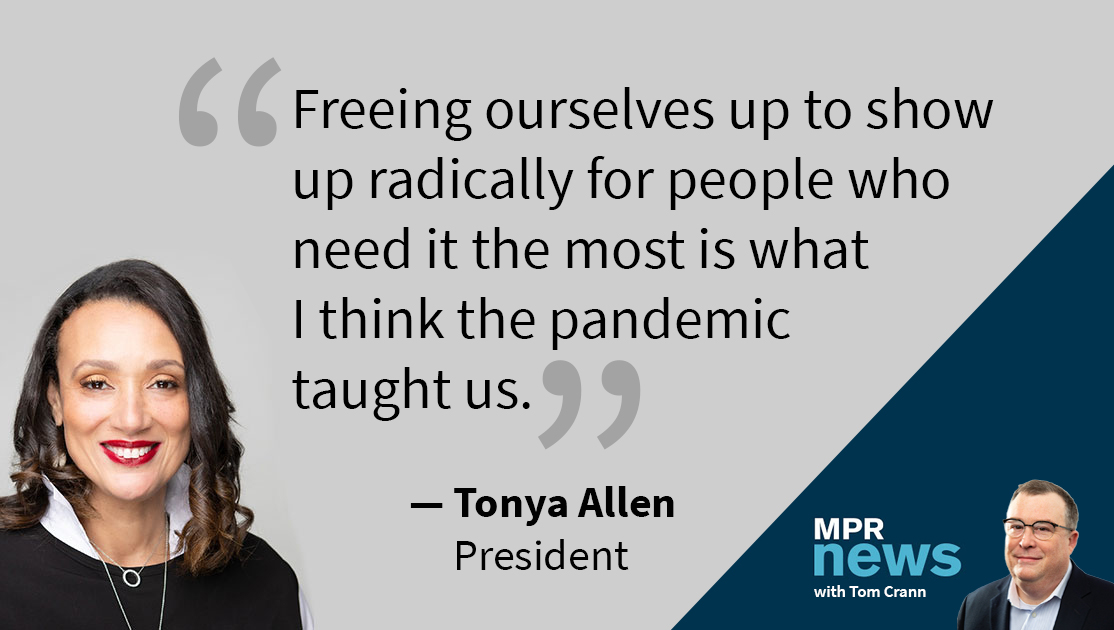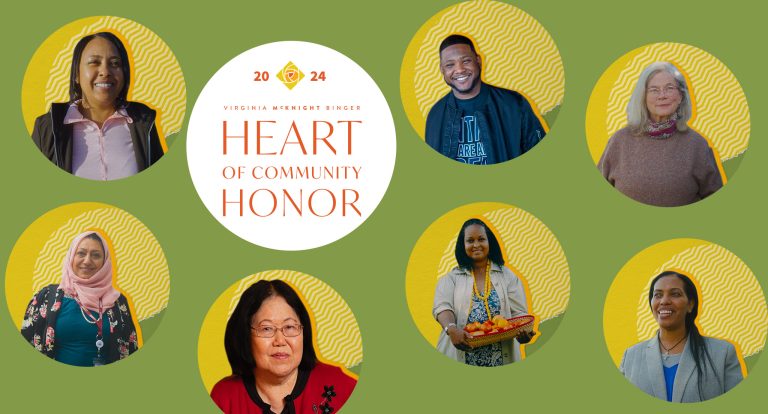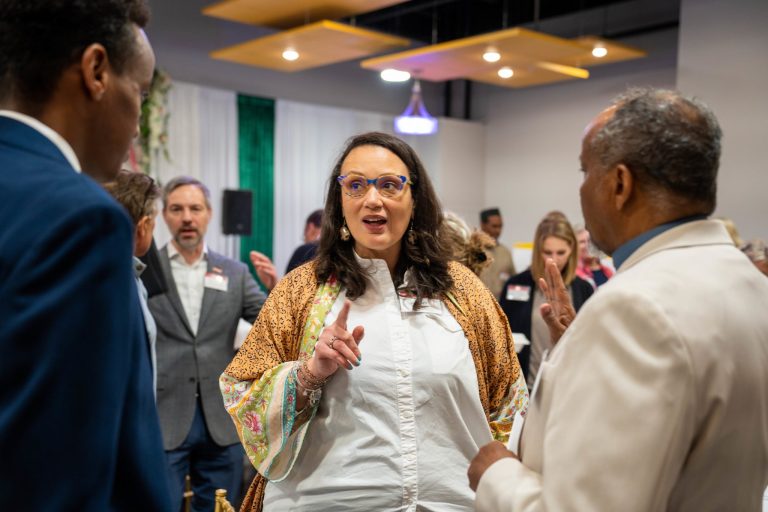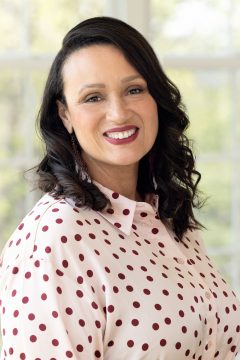
Tonya Allen was a featured voice on Minnesota Public Radio’s “Future of Us” series looking at how a pandemic, a police murder, and a city on fire have changed us and our path forward.
INTERVIEW
Tom Crann: Today, a conversation with McKnight Foundation President Tonya Allen, about how the all-hands-on-deck mentality of the past three years has reshaped philanthropy.
Tonya Allen: With the pandemic, what we learned was that if we know there’s a need, answer it. Don’t wait for people to have to ask you for certain things. And one of the things that we just recently did was that we gave a set of economic relief grants to organizations. So, instead of waiting for the economy to contract and for them to have hard times, we just gave them grants without even them knowing it was coming. So, freeing ourselves up to show up radically for people who need it the most is what I think the pandemic taught us, and I hope we can hold on to that value.
Tom Crann: Another new practice born out of the pandemic, asking grantees for less paperwork.
Tonya Allen: We had so many hoops, so much bureaucracy that we would put in front of our partners in order for them to get the resources that they needed. And it was really driven by a lack of trust. And I would argue today, that if we give resources to people that we don’t trust, then that’s poor stewardship. The burden is on us, not on them.
Tom Crann: Following the murder of George Floyd, did something happen where you started to see a roadmap for where philanthropy could go?
Tonya Allen: I think his death has been an inspiration for all of us to think about what can we do more of, what can we do better. But I think the challenge is that all of us have been attempting to do that, but only in incremental ways. And I think that if we’re really going to change his death from being a tragedy to a transformation for our region, it means that we’re going to have to work together collaboratively. We can no longer go it alone. We have to curate our solutions. Modern day philanthropy is really a result of so many tycoons who had earned lots of money and they wanted to give it away, but they wanted a tax break related to that. And so, by doing so, they essentially turned that money not into their private money, but into public resources that were held in private trust.
So, many times when we hear about family philanthropies, it’s no longer the family’s money. It actually is the public’s money and the family serves as the governing entity of that. And as a result, I think we have seen philanthropy operate based on the interest of lots of individuals. I think that this is an opportunity for us to really rethink the way we show up. I’ve heard like Minnesota, the state of 10,000 Lakes, and then you hear like in 20,000 nonprofits, I don’t want to suggest in any way that 20,000 nonprofits aren’t doing good work. What I’m trying to suggest is that at some point or another, we’re going to have to curate our interests. What are the things that we are going to focus on? How do we invest in those things so that we can have the greatest impact that we would desire as a community? There’s no community that’s ever made it through tough times without creating some focus and intentionality about where you’re going to invest, what comes first?
Tom Crann: Give us an example. What does that change, that transformation look like?
Tonya Allen: One of the things that we started to do with lots of our partners post the uprisings, we asked this question, which was, how do we use our capital in a different way? Is there a way for us to pool our capital, to aggregate it, to syndicate it, to make sure that it’s actually deployed in a way that’s more racially equitable, and that also has some climate resiliency involved and engaged in the rebuilding of the Twin Cities? And that effort is called GroundBreak, where we have really so many amazing leaders all across the Twin Cities and amazing leaders across the country who are coming together to wrestle with that question.
Tom Crann: How is that different than what’s happened before?
Tonya Allen: Usually when you hear efforts of like a GroundBreak, it’s really about how organizations might put together a fund. You sit that fund over to the side and that fund will make these special investments. We’re not actually establishing a fund. What we’re trying to do is say that each of these organizations have to undergo fundamental change. And that means that we are thinking about how capital flows regularly, often, and without barriers. And that is very different than, I’ll give you some money, I’ll turn my head, I don’t have to think about this anymore. This is really about rethinking the way you show up with your practices.
And then the last piece is that this isn’t incremental. So, we’re not thinking about how do we do a lot of small things. What we’re thinking about is how do we scale the solution to the size of the problem. As not to suggest that small things don’t matter, I think you can do great things with small things. But I think that sometimes we have to set aside our own priorities to actually move forward a collective set of priorities.



